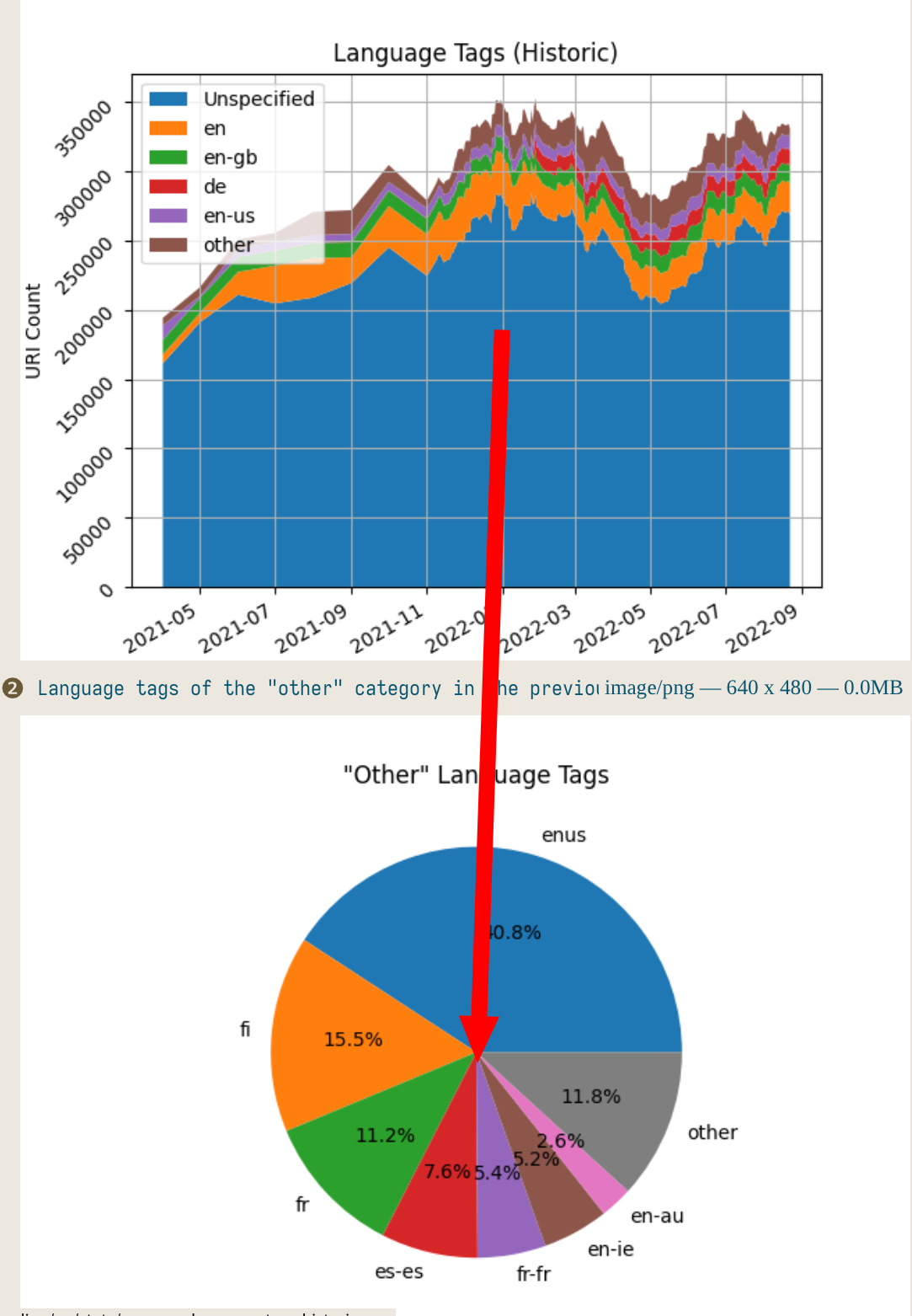

In Gemini, languages aren't always specified upfront in pages, but it's still possible to learn what (or who) makes up Geminispace; that little brown portion is broken down further at the bottom pie chart
During the past weekend we took note of multi-lingual or 'polyglot' aspects of NewsWaffle, which is language-agnostic and mostly site-agnostic. It just converts millions of news pages, irrespective of their languages, into very decent quality GemText pages with images. The Web would be better off named GAFAMWeb as about three quarters of all Web users just use Chrom* (essentially the same Web browser) and half the Net is monopolistic corporations clogging up the switches. There are thankfully alternatives, whose adoption is consistently growing (Lupa will soon list 2,700 Gemini capsules).
“So the Web isn't "open" anymore. It's not accessible either. We need to advance and promote alternatives to it.”According to these latest charts, based upon a survey of Geminispace, Europe is fast to adopt Gemini Protocol. Curiously enough, it turns out that the home of Opera and Vivaldi, Norway, is like a 'last stronghold' of Mozilla Firefox, where it's still estimated to have the most share and incidentally, Mozilla recently added a lady from Scandinavia Online to its Board of Directors; it's Kristin Skogen Lund from Norway, a country that adopts GNU/Linux too. Before Opera was sold to China (whereupon it lost a lot of share and basically became another Chrom* clone) Opera used to fight for Web standards and diversity of rendering engines. It even got the European authorities involved in these battles.
Did Opera win? No. It surrendered. Sold, sold out, coopted.
To understand just how much of a monoculture the Web has become consider the following: (yes, Norway stands out)